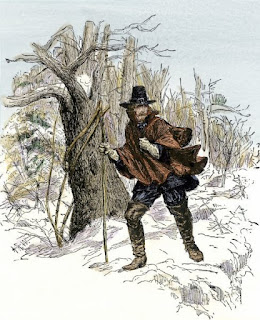The Remedy for Panic
October 30th Devotional
Psalm 55
While children were preparing for a fun Sunday evening of trick or treat the Columbia Broadcasting System was airing an updated version of H.G. Well’s “The War of the Worlds” on their 8:00 PM slot. The year was 1938 and most Americans were gathered around their radios for their evening entertainment. Dramatized radio theater was extremely popular during that time. Most famous Hollywood actors were also narrators for radio stations. The narrator for this particular broadcast was a young Orson Welles. Welles was only 23 at the time but was already famous for his voice on “The Shadow.” Welles theater group, the Mercury Theater, wanted to update “The War of the Worlds.” H.G. Wells, the writer, was a famous English author who penned over fifty pieces in his lifetime, the most famous of which were his science fiction novels, which included “The Time Machine” and “The Invisible Man.” He is considered to be the father of science fiction novels. The broadcast started as a faux newscast; it included daily news along with a weather forecast. Anyone who didn’t know it was a dramatization would have thought it was simply the evening news mixed in with music from Ramón Raquello and his orchestra. But as the broadcast continued there were interruptions by explosions on Mars, interviews with scientists, and eventually a crash landing near a farm in Grover’s Mill New Jersey. It was there that the Martians began their attack against the human race. The program was acted so perfectly that many people felt that the broadcast was real instead of fiction. It was reported that many people panicked. People were calling into the station and the producers were so shocked that they had to interrupt the program to announce that it was fiction. The damage was already done. Police rushed to the station and attempted to stop the broadcast. This act was investigated and highly criticized for weeks, but it made Orson Welles a household name. He was cast as the lead in the movie Citizen Kane shortly after this program (Kane is considered to be one of the most famous films in cinematic history).
The listeners of the program panicked. I mean let’s be honest, if we thought Martians were attacking I’m pretty sure we would panic too. What about panic? The Bible doesn’t use the word panic per se, but it does give situations when people were panicked. A good example can be Psalm 55:3-8 “My heart is in anguish within me, the terrors of death have fallen upon me. Fear and trembling come upon me, and horror overwhelms me. And I say, “Oh, that I had wings like a dove! I would fly away and be at rest; yes, I would wander far away; I would lodge in the wilderness; Selah I would hurry to find a shelter from the raging wind and tempest.” This rings clear of a time of panic. You can almost picture the writer’s blood pressure increasing, his chest tightening, his fear rising and his faith sinking. We can picture it because we’ve been there. We live in a world full of trouble and stress. It can be overbearing at times. It can almost leave us handicapped. Some of you reading this might deal with panic regularly, maybe even resulting in panic attacks. What do we do in the face of such a fearsome and powerful enemy? What did the Psalmist do? In Psalm 55:16-17 the writer tells us “But I call to God, and the Lord will save me. Evening and morning and at noon I utter my complaint and moan, and he hears my voice.” The cause of the panic doesn’t magically go away, but the Psalmist finds his strength in the Lord. He cries out to God, and the promise is that God listens and God will help. It doesn’t make sense for us as Christians to act like there is nothing in this world that will cause us panic and fear. God understands that we are prone to worry and panic, that’s why He’s always readily available to listen and aid us. Our prayer to God helps to protect us from being overpowered by fear and panic. It guards our hearts and minds. Apply prayer to your panic and you will find peace.



